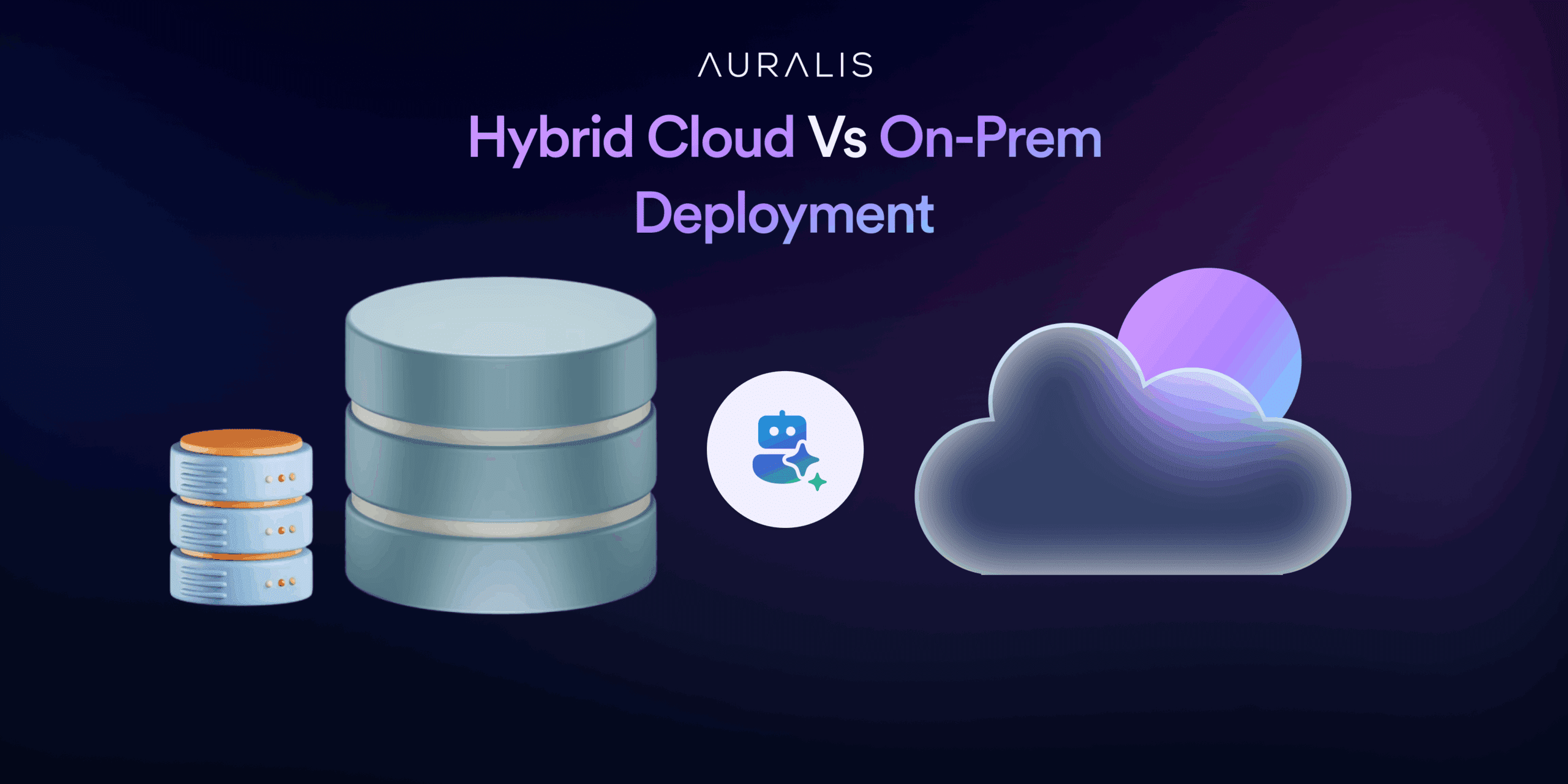As businesses establish more customer touchpoints across digital channels, cybersecurity has become a rising concern.
From data breaches to phishing attacks, cyber threats are evolving rapidly. And this requires IT security teams and compliance officers to stay up-to-date on the industry best practices to keep every customer interaction secure.
In this post, we’ll explore how AI can help companies improve cybersecurity in customer support and why it is important.
Table of Contents
Why is cybersecurity important in customer support interactions?
Here’s why businesses are now focusing on implementing measures to safeguard conversations:
- Sensitive data – Customer support interactions often involve sharing personal information. This includes account details, financial records, PINs, etc. Cybersecurity prevents this data from being exploited.
- Compliance with regulations – Regulations like GDPR and CCPA require data protection. A breach can result in severe legal penalties and reputational damage in the long run, negatively impacting the bottom line.
- Financial losses – Cyber attacks can lead to financial losses through fraud, legal fees, and regulatory fines. Using AI to secure customer interactions across touchpoints can help minimize risks and the costs associated with them.
How AI helps improve cybersecurity in Customer support interactions?
Here’s how companies using Auralis have been safeguarding their customer interactions across channels:
1. Threat detection and prevention
One of the biggest challenges in cybersecurity is being able to detect threats in real time. AI solutions use machine learning algorithms to detect anomalies in network traffic and user behavior even during customer interactions in real-time.
- Behavioral analytics – AI can identify and analyze patterns in customer interactions, and detect anomalies. For example, if a customer normally interacts with your support bot during regular business hours but sees sudden logins at unusual hours, the system can flag the conversation in a timely manner.
- Real-time threat hunting – When a potential attack is detected, AI systems can automatically take a series of defined actions to prevent further damage. This could include blocking IP addresses, disconnecting a user session or promoting multi-factor authentication.
- Intrusion prevention – Monitoring suspicious activities can help AI prevent unauthorized access or intrusions into customer support systems. This minimizes the risk of data exposure.
Also read: How to secure AI integrations across multi-channel customer support
2. Advanced encryption and data protection
Encryption is a necessary layer of cybersecurity that protects sensitive customer data. AI customer support tools enhance this process by ensuring the encryption remains impenetrable and can automatically adapt to new threats.
- AI-powered encryption – Improve encryption protocols by evaluating algorithms in real-time. Identify weak or outdated encryption keys and replace them with solutions that strengthen the security.
- Dynamic encryption – AI-powered systems can dynamically encrypt and decrypt sensitive customer data based on interactions. This ensures that only authorized individuals or systems can access the data collected during support queries.
3. Robust authentication and verification
Common customer support queries include requests for password resets, updating account information and making payments. But these actions require robust authentication mechanisms that prevent fraud and identity theft – this is where AI comes into play.
- Biometric authentication – AI can analyze biometric data like voice, facial recognition and even typing patterns to authenticate customer interactions. This helps add an additional layer of cybersecurity.
- Multi-factor authentication – You can go beyond the standard one-time passwords and assess factors like user behavior, location, and device recognition. AI can prompt additional authentication steps based on customer behavior analysis.
- Identity verification – Companies can use AI to cross-check the identity of customers in real-time. This is especially important during account creation or sensitive transactions where verifying customer identity needs to be more thorough.
4. Proactive intrusion detection
Intrusion detection systems are important for identifying malicious activity and intrusions in a network. While traditional IDS relies on predefined rules and signatures, AI can learn from previous attacks and automatically update its defenses.
- Predictive security – AI algorithms learn from past interactions and incidents to predict potential vulnerabilities.
- Automated response – Systems can be trained to detect intrusions faster than human teams, isolating compromised systems faster to prevent attackers from further penetrating data sets.
5. Real-time fraud detection and prevention
Fraudulent activities like account takeovers or unauthorized transactions can occur during customer support interactions. AI can help monitor these interactions in real-time to take immediate actions.
- Transaction monitoring – AI can keep track of transaction data in real-time to identify unusual patterns or behaviors associated with fraud.
- Customer profiling – Companies can create comprehensive customer profiles based on past interactions across channels. This further helps identify cybercriminals impersonating customers.
6. Phishing attack prevention
Phishing continues to be one of the most common ways for attackers to gain unauthorized access to customer data. AI can help identify phishing attempts and warn customers as well as support team agents in real-time.
- Interaction filtering – AI can scan emails, messaging apps and other touchpoints to analyze the language, tone and links used in an interaction. It can cross-reference conversations to warn or block suspicious conversations on both fronts.
- AI chatbots – Customer support chatbots can be trained to recognize suspicious language or requests during interactions. For example, if a conversation does not require exchanging passwords or financial details, but does, the chatbot can automatically flag and block the message to notify the security team.
7. Compliance monitoring
Adhering to regulatory frameworks like GDPR, HIPAA or PCI-DSS is crucial for businesses. AI helps monitor customer interactions to secure all data, automating compliance and ensuring the company follows all the regulations and standards set up.
- Compliance audits – AI can track and log customer interactions, making it easy to review logs for compliance. This helps identify potential violations such as unauthorized data sharing or insecure communication channels.
- Data privacy – AI tools can monitor how well customer data is being handled in accordance with privacy regulations. This includes anonymizing customer data or deleting certain information after defined periods.
Also read: How to navigate GDPR compliance when using AI for customer support
How to implement AI for cybersecurity in customer support?
While AI offers several advantages for improving cybersecurity in customer support interactions, companies must follow a few best practices:
- Select the right AI tools – Evaluate customer support solutions based on their ability to integrate with your existing infrastructure. Look for ways in which the solution uses AI to handle customer interactions and secure data in real time.
- Train AI algorithms – AI systems need to be trained to identify different threats and behaviors. Provide high-quality data from past interactions to help the systems create a strong foundation.
- Monitor AI systems – Human oversight is necessary. Regularly monitor your AI-powered customer support systems and frameworks for false positives and ensure they are updated with the latest intelligence.
- Ensure compliance – Certain regulations may vary based on the industry or demographic you are in. Ensure you’re aware of local and international laws that customer interaction data security must adhere to.
Also read: Best practices for implementing AI-powered support automation
Conclusion
As cyber threats continue to grow in complexity, businesses need to use AI for more than just intelligent automation in customer support.
From advanced threat detection and real-time encryption to setting up robust authentication that protects sensitive customer data, AI helps companies improve their cybersecurity measures.
Customer support solutions like Auralis AI offer 360-degree security for interactions across channels. All sensitive data and PII is pre-processed out with multiple AI trust layers at every stage. The advanced and customized AI workflows for customer support teams are built from scratch on security, trust, and transparency.











